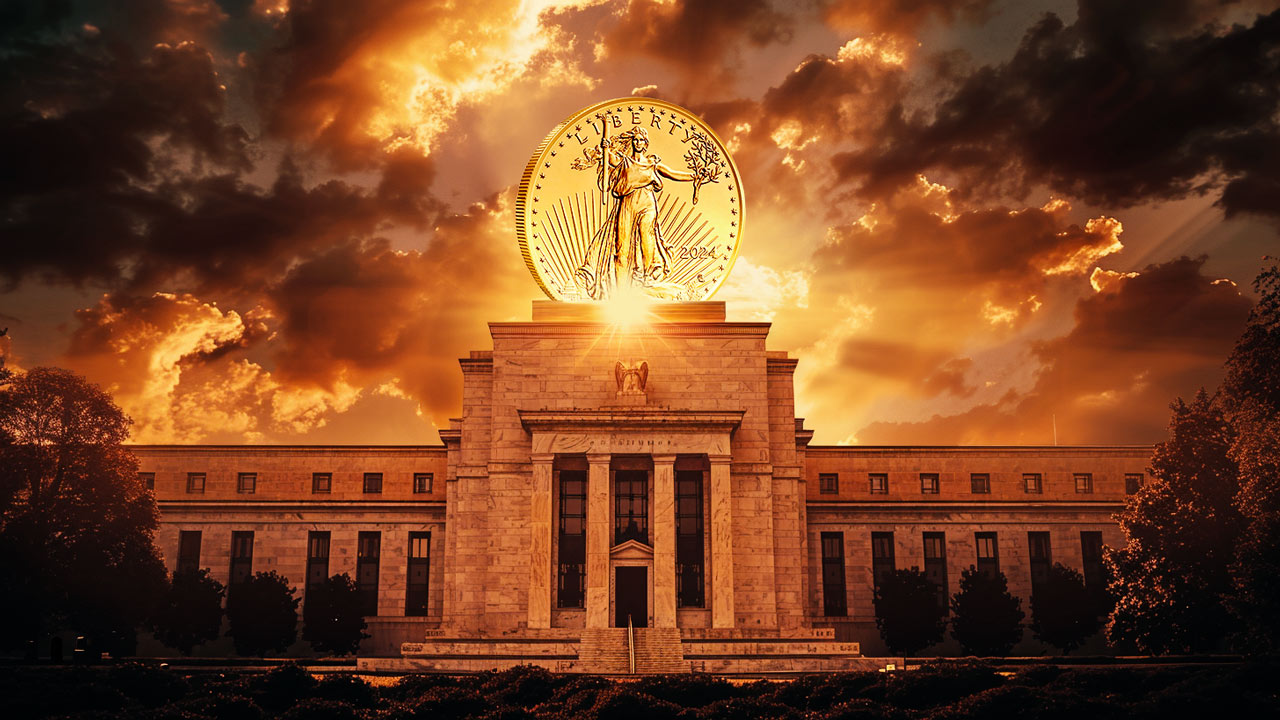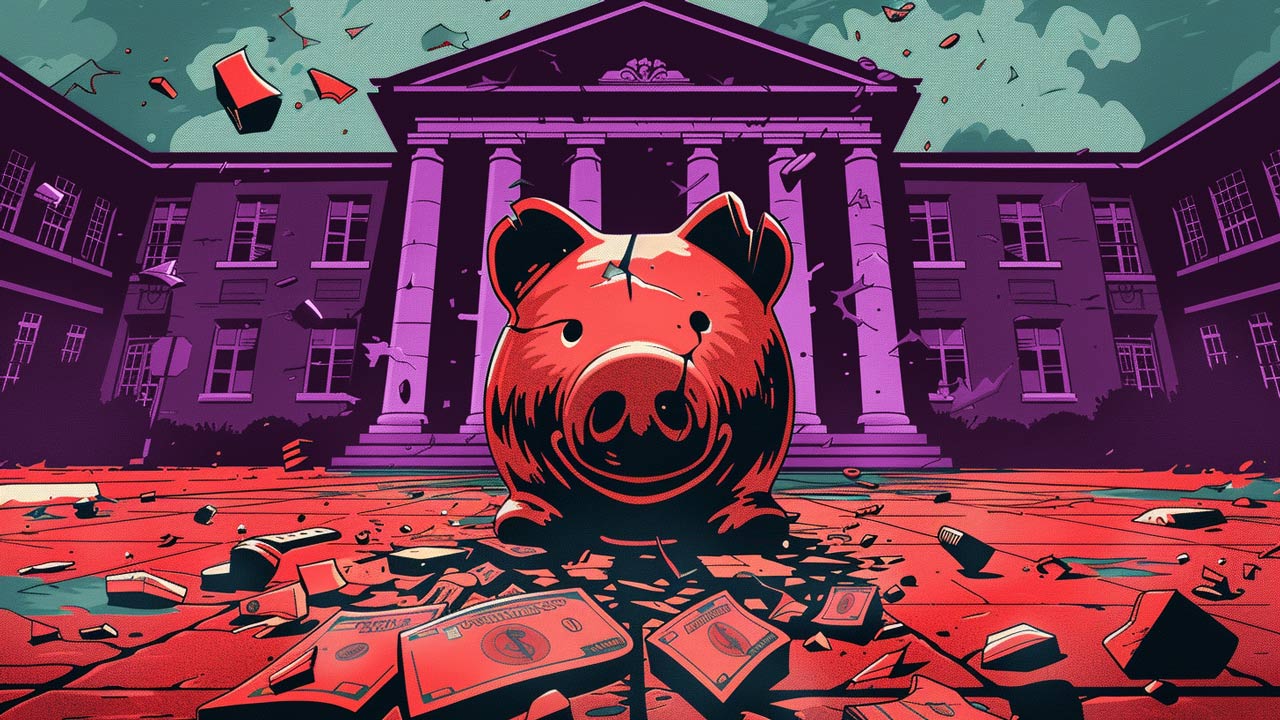The Slowing US Economy Is Too Obvious to Ignore (Audio)
Peter Schiff reviews the most recent United States economic data and the reaction of the foreign exchange markets in his latest podcast. We’re seeing some of the worst economic numbers since the Great Recession, so will the Federal Reserve really raise rates this year? Peter also discusses the propaganda surrounding Standard & Poor’s settlement with the US government, as well as the latest news out of Greece.
Highlights from Peter’s podcast:
“We had a very volatile day today in the foreign exchange markets, the equity markets, the crude oil markets…
“Let me first look at the personal income and spending numbers that came out on Monday. Personal income was up by 3/10th of a percent, which was in-line with the forecast. They did downwardly the prior month, which was up 0.4. They moved that to 0.3. But personal spending – that’s where we got the bad news as far as the US GDP was concerned. They were looking for a decline of 0.2, instead we got a decline of 0.3. Which, believe it or not, is the largest decline in monthly personal spending since September 2009, during the Great Recession. If you look at the wages and salaries component, the gain was the slowest pace in seven months.
“But the real bad news was the December ISM manufacturing index. It plunged all the way down to 53.5. That’s the lowest level since January; that’s the middle of the polar vortex – January of last year. It’s way below estimates. The new orders tanked. The employment growth sank to a seven month low. This is for December. More bad news, which again, means that the 2.6% GDP numbers that we got will likely be revised downward.
“In fact, we got more bad news today on December when it comes to US factory orders. They declined a whopping 3.4% in December. That’s the fifth consecutive monthly drop… The second largest monthly drop since March 2013… The year-over-year numbers for a full year ending December 2014, orders were down by 3.6%. That is the biggest year-over-year decline in factory orders since November 2009. So that’s the year beginning November 2008 to November 2009. Right smack in the middle of the Great Recession, and that’s the last time factory orders were as weak on a yearly basis as they are now.
“If we’re talking about factory orders that are the same as they were during the Great Recession, how is this the Great Recovery that Obama was bragging about in his most recent State of the Union address? He’s going to end up looking worse than George Bush did when he was saying ‘Mission Accomplished’…
“I think when they revise the GDP number for the fourth quarter of last year, it could be down to maybe 2.2. This is a rapid decline, maybe a 50% reduction from the 5% BS number that we got for the third quarter.
“This jobs number [to be released this Friday] is going to be big. Maybe people are starting to worry, ‘What if we get a weak jobs number that is as weak as the GDP number?’ Maybe not worried; maybe hopeful. Because that would take the Fed rate hike out of the game…
“A big drop [in the Australian dollar] on a surprise rate cut by the Bank of Australia. They lowered their interest rates to a all-time record low 2.25%. This is lower than it was at anytime in the Great Recession year… They did this despite the fact that their CPI inflation year-over-year is still 1.7%… They got plenty of inflation in Australia, but apparently they want more…
“Gold prices last night in Australia were only about 7% below the all-time record high. Think about that. Gold prices in dollars are about $1260 right now. The record high was $1900. We’re miles away from record. Yet, we’re only about 7% below the all-time record high in Australian dollars, and you’ve got the central bank saying our currency is too strong. Well, the weakness against the gold price would beg to differ.
“And what’s wrong with a strong currency? Why is the Australian central bank determined on increasing the cost of living for Australians? They basically were worried about losing the currency war, so they fired a shot right at the hearts of their own citizens and they had a direct hit…
“I think [the rise in foreign currencies against the dollar] wasn’t as much Greece, as it was people starting to prepare for the possibility of a weak jobs number. Maybe a lot of this negative economic news is going to finally start to make a difference. Remember, this whole dollar rally was based on a belief that the Fed was going to be tightening… If the Fed isn’t going to be raising rates… Then the 2.25% in Australia doesn’t look so bad…
“[Not only are we going to get QE4], we are going to get a budget-busting economic stimulus where the president is going to get increases in government spending. The Republicans in Congress are going to get tax cuts. We’re going to combine tax cuts with increases in government spending, and we’re going to blow a hole in the budget deficit and send it soaring back up to about $1.5 trillion…
“What the ratings agency is supposed to do is assess the likelihood that the government might resort to inflation; that they might resort to the central bank printing money to buy its bonds. When it comes to the US government, they don’t have to figure out if the US government is going to resort to debt monetization. They’re already doing it… So obviously, if you hold onto US Treasuries long enough, they’re going to be worthless. Because they can never pay it back legitimately, so it’s only a matter of time before the dollar collapses and we have runaway inflation. We know they shouldn’t be rated AAA, but they’re always going to be rated that, because nobody dares downgrade them, because the government has already shown – this is what happens to you if you downgrade…”
Get Peter Schiff’s latest gold market analysis – click here – for a free subscription to his exclusive weekly email updates.
Interested in learning more about physical gold and silver?
Call 1-888-GOLD-160 and speak with a Precious Metals Specialist today!



 With a hot CPI report casting a shadow of doubt on the likelihood of a June interest rate cut, all eyes are on the Fed. But they’ve caught themselves in a “damned if they do, damned if they don’t” moment for the economy — and the news for gold is good regardless.
With a hot CPI report casting a shadow of doubt on the likelihood of a June interest rate cut, all eyes are on the Fed. But they’ve caught themselves in a “damned if they do, damned if they don’t” moment for the economy — and the news for gold is good regardless.  It’s no secret that the American public is wildly ignorant of many issues that are central to the success of our nation. Just a generation ago it would have been unthinkable that less than half of the American population could recognize all three branches of government. America is in most cases far less educated about its government […]
It’s no secret that the American public is wildly ignorant of many issues that are central to the success of our nation. Just a generation ago it would have been unthinkable that less than half of the American population could recognize all three branches of government. America is in most cases far less educated about its government […] In investing, “Buy low, sell high” is among the most well-known sayings, and generally, it’s good advice. But with gold still holding near its historic all-time highs, central banks led by China are bucking the classic adage and smash-buying more, buying the top to fortify themselves against a global monetary and financial blow-up.
In investing, “Buy low, sell high” is among the most well-known sayings, and generally, it’s good advice. But with gold still holding near its historic all-time highs, central banks led by China are bucking the classic adage and smash-buying more, buying the top to fortify themselves against a global monetary and financial blow-up. When John Bogle died in 2019, people around the world mourned. Bogle created the Vanguard Group and made the index fund mainstream. Index funds are investment vehicles that invest in a class of investments as a whole, rather than trying to predict what specific stocks or securities will do best. So an investor could invest in an […]
When John Bogle died in 2019, people around the world mourned. Bogle created the Vanguard Group and made the index fund mainstream. Index funds are investment vehicles that invest in a class of investments as a whole, rather than trying to predict what specific stocks or securities will do best. So an investor could invest in an […] As the Democratic Party has shifted away from its traditional base of working-class and middle-class Americans, to an increased reliance on college professors, students, and highly educated but low-paid professions, such as social workers, a new policy has risen to prominence: student loan forgiveness.
As the Democratic Party has shifted away from its traditional base of working-class and middle-class Americans, to an increased reliance on college professors, students, and highly educated but low-paid professions, such as social workers, a new policy has risen to prominence: student loan forgiveness. 
Leave a Reply